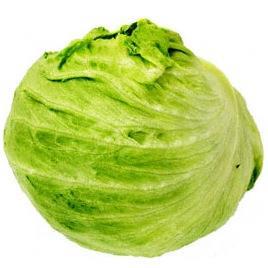
Growing lettuce on Mars is set to become a reality for a group of UK students.
The pioneering project is among 10 other university projects to be included as payload on an unmanned Mars One craft that will land on the planet in 2018.
The lettuce will be grown in a greenhouse that will use sunlight and atmosphere to grow the plant.
Project leader Suzanna Lucarotti from the University of Southampton said: 'We have tackled diverse sets of engineering challenges, including aeroponic systems, bio filters, low-power gas pressurisation systems and fail-safe planetary protection systems and then integrated them all into one payload on a tight mass, power and cost budget.'
The project, entitled #LettuceOnMars, will see the frozen lettuce seeds launched from Earth along with water, nutrients, and units needed for atmospheric processing and electronic monitoring.
Once on Mars, a temperature between 21C to 24C will be maintained. The plan is for carbon dioxide to be extracted from the planet's atmosphere and used.
The progress of lettuce will be followed from Earth through the pictures transmitted as the lettuce matures from seed to full plant. Once the mission is completed, the heaters would wipe out any trace of life in the payload, to avoid contamination of the planet.
The experiment is intended to study how plants respond to low gravity: Mars has a gravity one-third that of Earth's. The other aspect would be of the effect of cosmic particles that blast the surface of the planet thanks to the lack of a viable atmosphere.
Plant experiments have been done in space under micro-gravity conditions. The International Space Station, for instance, has been home to a vegetable production unit.
Mars One is a Netherlands-based project that plans to colonise Mars by 2025.



